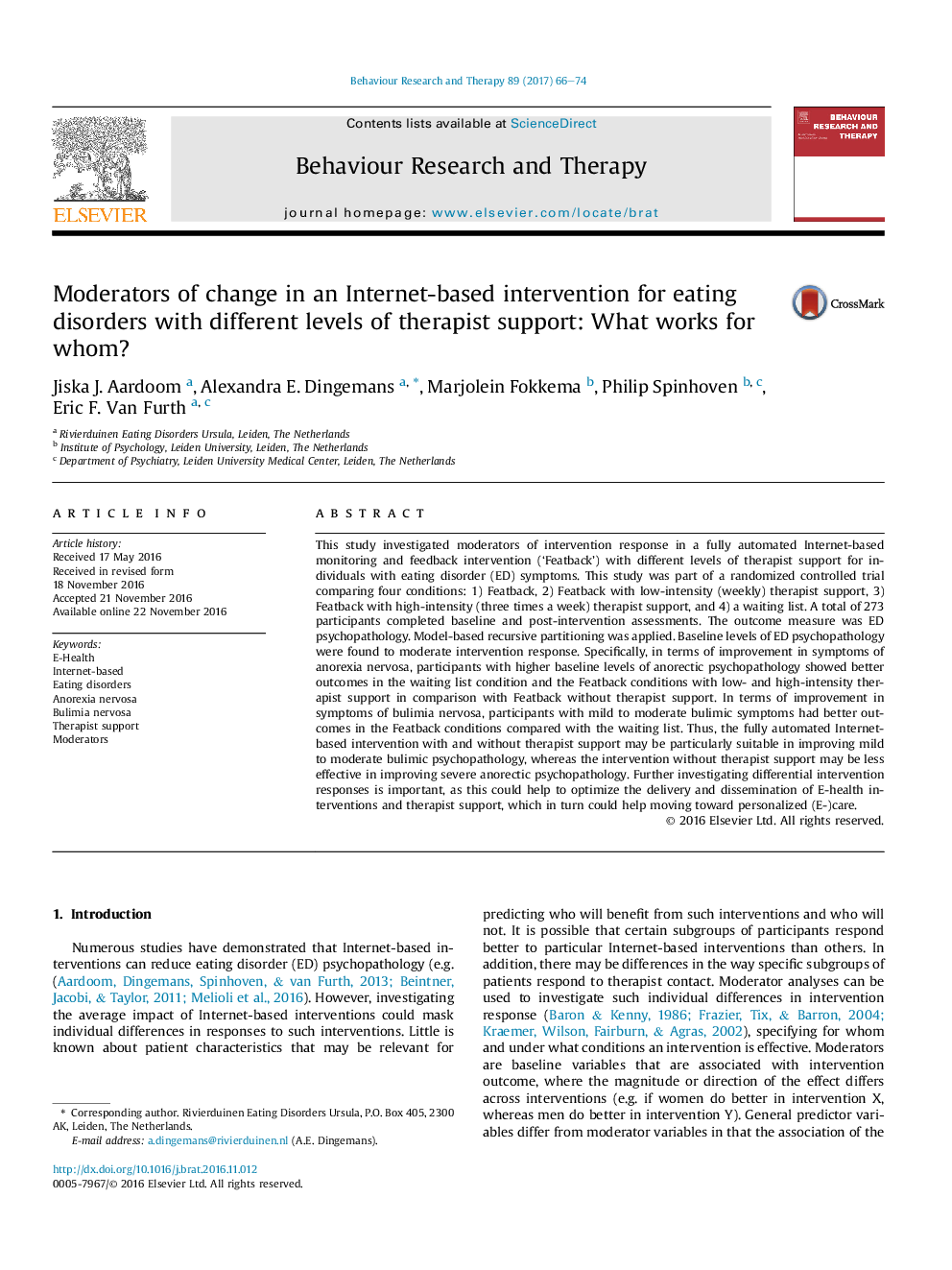| کد مقاله | کد نشریه | سال انتشار | مقاله انگلیسی | نسخه تمام متن |
|---|---|---|---|---|
| 5038323 | 1472760 | 2017 | 9 صفحه PDF | دانلود رایگان |
- Little is known about who benefits from E-health interventions for eating disorders.
- Moderators of outcome in an automated Internet-based intervention were investigated.
- Response to different intensities of therapist support were investigated.
- Intervention seems particularly effective for mild symptoms of bulimia nervosa.
- Unguided intervention may be less suitable for severe symptoms of anorexia nervosa.
This study investigated moderators of intervention response in a fully automated Internet-based monitoring and feedback intervention ('Featback') with different levels of therapist support for individuals with eating disorder (ED) symptoms. This study was part of a randomized controlled trial comparing four conditions: 1) Featback, 2) Featback with low-intensity (weekly) therapist support, 3) Featback with high-intensity (three times a week) therapist support, and 4) a waiting list. A total of 273 participants completed baseline and post-intervention assessments. The outcome measure was ED psychopathology. Model-based recursive partitioning was applied. Baseline levels of ED psychopathology were found to moderate intervention response. Specifically, in terms of improvement in symptoms of anorexia nervosa, participants with higher baseline levels of anorectic psychopathology showed better outcomes in the waiting list condition and the Featback conditions with low- and high-intensity therapist support in comparison with Featback without therapist support. In terms of improvement in symptoms of bulimia nervosa, participants with mild to moderate bulimic symptoms had better outcomes in the Featback conditions compared with the waiting list. Thus, the fully automated Internet-based intervention with and without therapist support may be particularly suitable in improving mild to moderate bulimic psychopathology, whereas the intervention without therapist support may be less effective in improving severe anorectic psychopathology. Further investigating differential intervention responses is important, as this could help to optimize the delivery and dissemination of E-health interventions and therapist support, which in turn could help moving toward personalized (E-)care.
Journal: Behaviour Research and Therapy - Volume 89, February 2017, Pages 66-74
